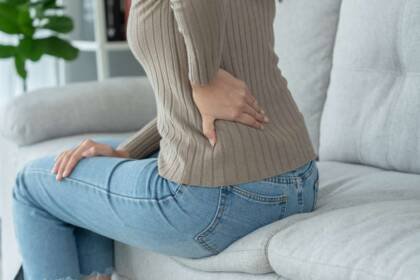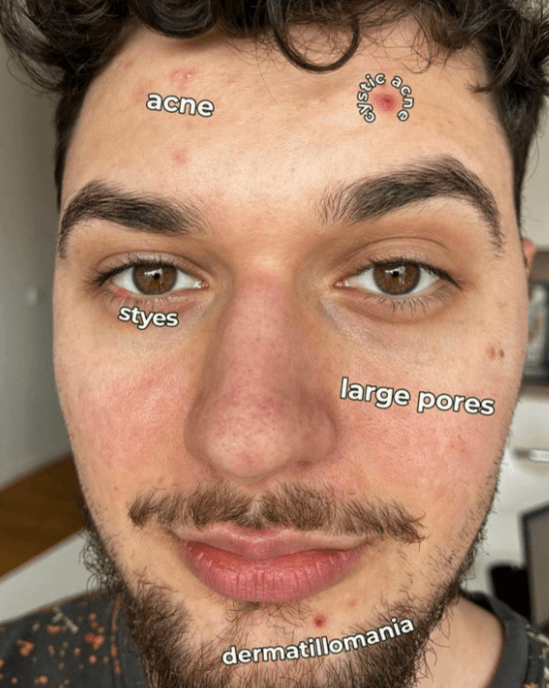Bed bugs are a type of microscopic parasitic insect that feeds at night on the blood of mammals, birds, and people. If you’re unlucky enough to have an infestation, you’ll know how difficult these pests are to eradicate.
Bed bug bites are one of the most noticeable signs of an infestation. Bites from bed bugs can be itchy, unpleasant, and unattractive, but there are several home cures and do-it-yourself solutions available to help alleviate these symptoms.
In this post, we’ll take a look at some of the most effective home cures for treating bed bug bites. We will talk about the signs that indicate you should see a doctor and the steps you may take to avoid getting bed bugs in the first place.
Recognizing a Bed Bug Bite
Those who are plagued by bed bug infestations often complain of being bitten by pests. Bed bugs are tiny, wingless insects that live off the blood of animals and people. Bed bugs are nocturnal feeders that frequent mattresses, couches, and other upholstered items. Identifying and treating bed bug bites requires knowledge of the signs and symptoms associated with these attacks.

1. How Bed Bug Bites Look Like
Bites from bed bugs generally emerge as itchy, red lumps on the skin. A red rash or hives may surround them, and they may appear in a line or a cluster. Bed bug bites are frequently misdiagnosed as being caused by mosquitoes or fleas, but there are important distinctions that can be made.
A bed bug bite, in contrast to mosquito bites, are often not as elevated or puffy. While mosquito bites tend to be more sporadic, those from bed bugs tend to cluster or form lines.
Flea bites are less severe than those caused by bed bugs and often only appear on the lower legs and ankles.
2. Signs and Symptoms of Bed Bug Infestations
Depending on how sensitive one is to bed bug bites, one may experience a wide range of symptoms. It’s possible that some people won’t respond at all, while others will have a severe allergic reaction.
There have been isolated reports of severe allergic reactions to a bed bug bite, including wheezing, chest tightness, and even anaphylaxis.
Bed bug bites commonly cause the following symptoms:
- Itching: Itching from bed bug bites can be extremely strong and impossible to ignore. Scratching the bites can irritate the skin even more and raises the possibility of infection.
- Swelling: Swelling at the bite site from a bed bug can be both painful and ugly.
- Redness: Little, raised red pimples, sometimes surrounded by a red rash or hives, are the classic symptom of a bed bug bite.
- Pain: Little pain or discomfort at the bite site is possible.
- Infection: Scratching or irritating the bites might cause infection, which can lead to even more problems.
Natural Remedies for Bed Bug Bites
Natural Cures Including Aloe Vera, LavenderOil, and Oats
The itching and discomfort caused by bed bug bites can be alleviated with some of the many natural therapies available. Aloe vera, lavender oil, and oatmeal are a few of the most recommended natural cures for bed bug bites.
- Aloe vera: Succulent aloe vera has been utilized for its healing properties for generations. The gel found within the plant’s leaves has anti-inflammatory and antibacterial qualities, making it useful for treating skin irritations and warding off infections.
- Lavender oil: The relaxing effects of lavender oil have made it a popular essential oil. For millennia, people have turned to this all-natural cure for dealing with issues like bug bites. Bed bug bites can cause swelling and discomfort, but lavender oil’s anti-inflammatory and analgesic qualities can help alleviate such symptoms.
- Oatmeal: Oatmeal has been used for ages as a natural cure for itchy skin. Its anti-inflammatory properties make it useful for treating the swelling and irritation caused by bed bug bites.
How Each Solution Soothes and Reduces Irritation
1. Aloe vera
The antioxidants, vitamins, and minerals in aloe vera gel make it an effective skin moisturizer. Its anti-inflammatory effects make it useful for treating bed bug bites and their accompanying swelling and irritation. In addition, the healing benefits of aloe vera are aided by its antimicrobial qualities.
2. Lavender oil
Compounds in lavender oil have been shown to calm irritated skin and lessen inflammation. Its analgesic effects make it useful for treating the discomfort brought on by bed bug bites. Lavender oil’s relaxing aroma is an added bonus for relieving stress and unwinding.
3. Oatmeal
The anti-inflammatory characteristics of avenanthramides, found in oatmeal, can help alleviate the swelling and itching caused by bed bug bites. Oatmeal’s emollient properties also make it a useful remedy for dry, irritated skin.
Natural Remedy Precautions and Hazards
Natural cures for a bed bug bite can be beneficial, but they should be used with care. It is vital to try any natural cures on a tiny patch of skin first, as some people may be allergic to them.
It’s also crucial to talk to your doctor before utilizing any natural therapies, as some of them may interact with your current prescriptions.
Finally, keep in mind that natural therapies aren’t always as effective as OTC drugs, so it’s vital to keep an eye on your symptoms and visit a doctor if they don’t improve.
DIY Treatments for Bed Bug Bites

1. Cleaning and Disinfection of Bites
The treatment of bed bug bites includes cleaning and sanitizing the affected area. Here is how you disinfect and sanitize the area:
- Scrub the area with soap and water to get rid of any grime or germs.
- To prevent infection, clean the bitten wound with an antiseptic or disinfectant, such as rubbing alcohol.
- Do not scratch the bite, since this might irritate the skin and increase the chance of infection.
- It will help the wound heal faster if you keep it dry and clean.
2. Reducing Inflammation and Discomfort with Cold Compresses
Using a cold compress to a bite from a bed bug can help alleviate the swelling and agony. These are the steps to take when applying a cold compress:
- Put some ice cubes in a fresh washcloth or towel.
- Ten to fifteen minutes at a time, apply the cold compress to the area.
- To avoid skin irritation, wait a few minutes between applications.
- To lessen swelling and pain, it is recommended to repeat the practice multiple times a day.
3. How Over-the-Counter Drugs Treat Symptoms
Hydrocortisone cream and antihistamines are two examples of over-the-counter medications that can alleviate the discomfort caused by bed bug bites. This is how they function:
- Hydrocortisone cream: Topical corticosteroids like hydrocortisone lotion helps alleviate the swelling and itching caused by a bed bug bite. As instructed, spread a thin layer of the cream over the injured region.
- Antihistamines: Itching and swelling caused by bed bug bites can be alleviated with the use of antihistamines. Histamines are substances that trigger allergic reactions, and inhibiting their release is how they operate. Diphenhydramine (Benadryl) and other OTC antihistamines can be taken orally or administered topically in the form of a cream or lotion. If you have any queries about the recommended dosage, please consult your healthcare professional and/or the product’s packaging.
When to Seek Professional Medical Attention
1. Conditions Requiring Medical Attention
Home cures and over-the-counter medications are usually sufficient for treating bed bug bites. But there are times when it’s best to see a doctor instead. For example:
- Signs of infection: Infection at the bite site can cause symptoms like high body temperature, increased discomfort, redness, warmth, pus, and discharge. If you experience any of these symptoms, see a doctor immediately.
- Severe itching or swelling: Bites from a bed bug can cause itching and swelling, but if either symptom is severe or affects a wide section of the body, medical treatment may be necessary.
- Allergic reactions: Bed bug bites can induce an allergic reaction in certain people, manifesting as hives, difficulty breathing, facial or tongue swelling, and a racing heart. If any of these symptoms develop, you must get medical help immediately.
- Multiple bites: Several bed bug bites could indicate a serious infestation in your home. In this scenario, extermination services should be called in to get rid of the infestation and stop any more attacks.
2. Infection and Allergic Reactions From Bed Bug Bites
Bites from bed bugs are usually harmless, but there are exceptions. Bed bug bites have the potential to cause the following complications:
- Infection: It is possible for bacteria to enter the bite site if it is damaged or fractured. The condition might worsen to cellulitis or impetigo in certain people.
- Allergic reactions: Bed bug bite can induce an allergic reaction in some people, manifesting as hives, breathing difficulties, and swelling. Extreme allergic reactions, such as anaphylaxis, are uncommon but possible.
- Psychological distress: Negative effects on mental health, such as anxiety and insomnia, have been linked to bed bug infestations.
Prevention of Bed Bug Bite
1. Bed Bug Prevention Advice
When it comes to bed bug bites, prevention is always preferable. To avoid a bed bug infestation and its accompanying itchy bites, follow these guidelines:
- Before taking anything used into your home, be sure it has been thoroughly inspected. These are prime places for bed bugs to hide and infest a property.
- Maintain a neat and orderly dwelling. Clutter is a hiding place for bed bugs, so getting rid of it can help prevent an outbreak.
- You should always cover your mattress and box spring to prevent damage. The use of these covers can reduce the likelihood of a bed insect infestation.
- It’s important to keep your home clean, so vacuum often. This method can be useful for getting rid of bed bugs and their eggs from mattresses, couches, and other household items.
- Close up any openings around your house. Insects like bedbugs are easier to keep out of your house if you do this.
2. Travel and Hotel Bite Prevention Techniques
There are other precautions you may take when staying in hotels or traveling to avoid being bitten by bed bugs. For example:
- Check for evidence of bed bugs in your hotel room. Make sure to inspect the bed, box spring, and any other upholstered items.
- Don’t let your bags clutter the floor or the bed. Put your bags on a rack or take them inside the restroom.
- After you get home, run a hot water wash on your clothes. Any hitchhiking bedbugs on your clothes will be killed by this method.
- Apply a spray to your bedding to ward off insects. You can protect yourself from bed bugs and their bites with the aid of these products.
- One option is to use a portable heater for the bedroom. These tools can be used to sterilize luggage and clothing by heating them to a temperature at which bed bugs and their eggs are killed.
Frequently Ask Questions
What are some natural remedies for bed bug bites?
Aloe vera, lavender oil, oatmeal, and tea tree oil are just a few of the natural therapies that can help soothe the skin and alleviate irritation. These treatments bring relief by calming inflammation and calming the skin.
Can I use ice to reduce swelling from a bed bug bite?
A bed bug bite can cause pain and swelling, but a cold compress or ice pack can help alleviate such symptoms. Apply ice in a towel or cloth for 10 to 15 minutes at a time to the sore spot.
Can I use hydrocortisone cream for bed bug bites?
The irritation and swelling caused by bed bug bites can be alleviated with hydrocortisone cream. A little layer of the cream can be applied up to three times a day to the affected area.
Can I use antihistamines to treat bed bug bites?
The irritation and swelling caused by bed bug bites can be alleviated with medications. Benadryl and other over-the-counter antihistamines can help alleviate discomfort.
Are there risks to utilizing natural bed bug remedies?
Some people are allergic to natural medicines. Before taking any natural cure, test a small amount on a small patch of skin and wait to see if there is any reaction. Stop using the treatment and seek medical attention if you have side effects.











